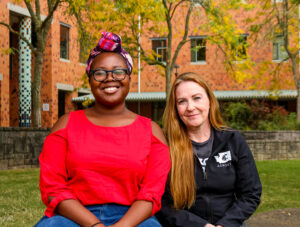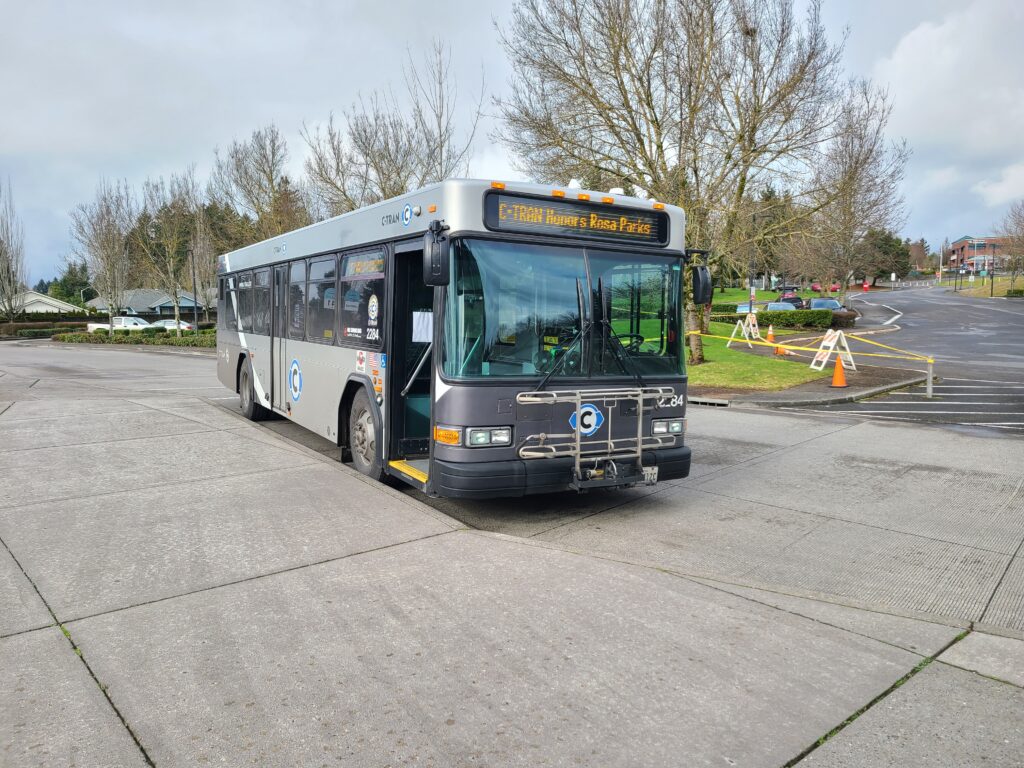Students who utilize WSU Vancouver’s free C-TRAN bus pass are experiencing issues with the service due to late arrivals, early arrivals and no arrivals at all – problems that cause major scheduling concerns for students who rely on the bus system to get to class.
“There’s nothing being done to facilitate this for students who take the bus, which makes this an intersectional issue. This affects students of color.” – Magellan Rankin
Jessica Smith, junior social sciences major and Director of Legislative affairs for the Associated Students of WSU Vancouver, said buses will take students to a different route without warning of a change.

(Josalyn Ortiz/The VanCougar)
“It’s exhausting and terrifying to be on a bus and not know where you’re going. The other day I didn’t recognize where I was going and I’ve been taking the bus since January. I asked the driver, and he said they changed the route, but their app told me they didn’t,” Smith said. “In another instance, I’ve been left on the corner of the road because [the driver] didn’t know where to stop. … The bottom line is that there’s no reliability.”
According to Magellan Rankin, senior human biology and anthropology major, and ASWSUV’s Director of Community Outreach, C-TRAN’s institutional issues are affecting students of lower income the most.
“There’s nothing being done to facilitate this for students who take the bus, which makes this an intersectional issue. This affects students of color,” Rankin said.
Jenny Chambers, WSU Vancouver’s chief financial officer, has met with C-TRAN representatives to find a long-term solution.

(Josalyn Ortiz/The VanCougar)
“I would say communication with C-TRAN has been very good because I’ve had three or four meetings with different folks. We’ve spoken partially around this concept, but also partially around getting to know them and building the relationship,” Chambers said.
Eric Florip, C-TRAN’s manager of communications, marketing and customer experience, said schedule changes are normal and expected. When a problem does arise, Florip said that they do their best to notify riders.
“We have a Twitter feed that sends out all service impacts that come up through the system, and we have partnered with Transit, an app that shows real time arrivals for every route in our system,” Florip said.
According to Florip, a proposed expansion to The Vine – C-TRAN’s bus route connecting Highway 99 to Salmon Creek – is currently in the planning phase and remains subject to change. This expansion would build a bus stop directly on campus. Currently, the closest bus stop to campus is more than 500 feet away. C-TRAN expects to have an expanded and reconstructed route determined in early 2023, with construction planned for 2026.
“I don’t believe that they are equipped to jump into action and fix this issue for our students,” Smith said. “C-TRAN worries about losing riders, about the connection they have with [the school], which is not the problem. The problem is that our students, faculty and administration are continuing to have to deal with the stress of being a C-TRAN rider,” Smith said.
On behalf of ASWSUV, and their positions as students who utilize the C-TRAN buses, Smith and Rankin encourage other students to voice their concerns with WSU Vancouver and C-TRAN’s route system.
“We’re not taking this lightly. We really care about addressing this issue in the ways that we can, and we’re really trying to make this a comprehensive issue,” Rankin said.

Norman is a senior majoring in Integrated Strategic Communications and Digital Technology & Culture.
